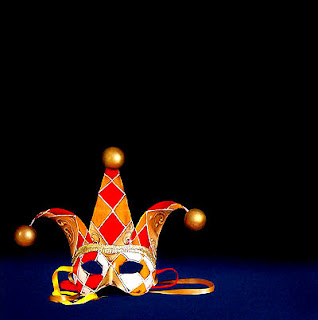Foolishness is measured in the expanse between what we learn and what we live.
The Bible is replete with description of and prescription for the fool:
The Bible is replete with description of and prescription for the fool:
“The fool only rages and laughs, and there is no quiet; a babbling fool will come to ruin; the mouth of a fool brings ruin; fools die for lack of sense; the way of a fool is right in his own eyes; wisdom is too high for a fool; crush a fool in a mortar with a pestle…yet his folly will not depart from him; the fool and the stupid alike must perish; the fool cannot understand; fools hate knowledge; fools get disgrace; doing wrong is like a joke to a fool; the heart of fools proclaims folly; a fool flaunts his folly; to turn away from evil is an abomination to fools; the companion of fools will suffer harm; leave the presence of a fool; the folly of fools is deceiving; a fool is reckless and careless; the folly of fools brings folly; the mouths of fools feed on folly; the mouths of fools pour out folly; a fool takes no pleasure in understanding; A fool’s lips walk into a fight, and his mouth invites a beating; like a dog that returns to his vomit is a fool; whoever trusts in his own mind is a fool; the fool walks in darkness; the lips of a fool consume him; the toil of a fool wearies him, for he does not know the way to the city; the fool speaks folly, and his heart is busy with iniquity; claiming to be wise, they became fools; foolish, faithless, heartless, ruthless. Though they know God’s decree that those who practice such things deserve to die, they not only do them but give approval to those who practice them;; the fool says in his heart, ‘There is no God.’; O simple ones, learn prudence; O fools, learn sense.”
Our level of personal foolishness is directly proportionate to the span between what we know and what we apply. When we know more than we practice, we play the fool. When we practice more than we know, we play the fool.
“Fools despise wisdom and instruction… everyone who hears these words of mine and does not do them will be like a foolish man.”
Our level of personal foolishness is directly proportionate to the span between what we know and what we apply. When we know more than we practice, we play the fool. When we practice more than we know, we play the fool.
“Fools despise wisdom and instruction… everyone who hears these words of mine and does not do them will be like a foolish man.”


